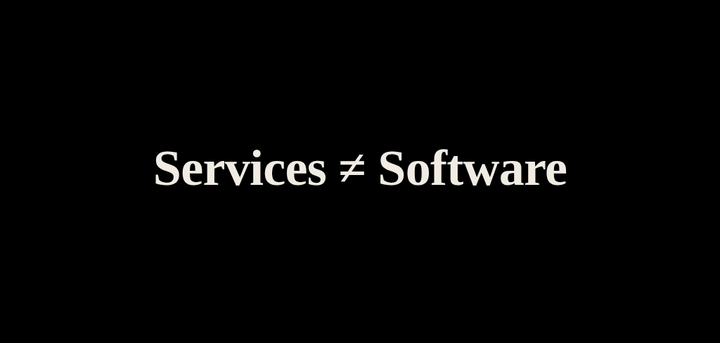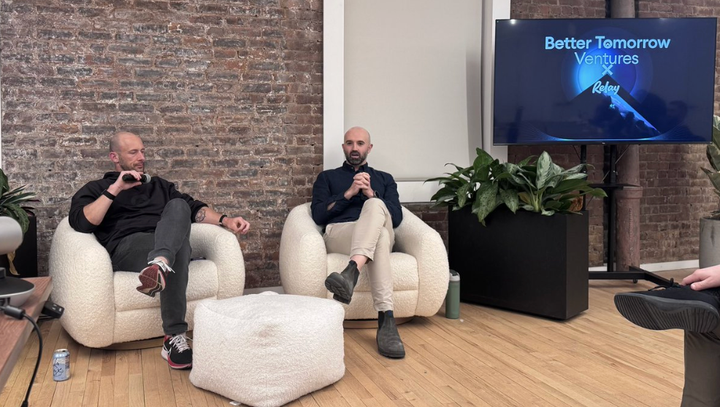Fintech x AI: The Next Great Intersection

We recently announced our third fund at BTV and on the back of that, JC in On the Heels of Fund III: Fintech’s Next Chapter, shared our thoughts on why fintech is “back again”.
At BTV, we’ve always thought of ourselves as investors at the intersections. Specifically where Fintech can intersect with parts of the economy you never thought it could. That’s led us to invest in marketplaces (Brkz, Permanent), vertical saas & b2b software (Clad, Lunar, Farmraise) and embedded infrastructure companies (Unit, Layer, Salsa, Sticker) here in the US and across the world.
As we think about the next decade, the intersection in front of us is glaringly obvious and that is the intersection of Fintech and AI. JC rightfully stated that “We’re excited to see this new wave of fintech innovation” but conceded that most of the opportunities are ones “we haven’t even thought of yet.”
While we’ve never taken ourselves seriously enough to predict the future and pontificate about the direction founders should take, we do however, love to observe the present, learn from it and work with founders to figure out what the future could look like. With that said, as a part of our annual LP meeting, we shared our thoughts on the Fintech x AI opportunities we are seeing and getting excited by, along with the AI native systems we see our own portfolio companies put in place to position themselves for this new normal.
This is the first of a two part segment in which I will share our thoughts on:
- The opportunities we are currently observing at the intersection of Fintech x AI
- The AI native systems we are seeing our portfolio companies put in place to compete
Fintech and AI are primitives
I want to start off with some level setting. At BTV, we’ve always looked at Fintech as a horizontal enabling technology and a definition we have internally, that some love more than others, states that “Fintech’s composability makes it an unobvious enabler”. Within our own portfolio, we’ve seen what companies like Unit and Layer can do to supercharge business models and product innovation for companies operating across multiple industries, not just financial services. We think about AI very similarly, apart from the fact that AI is quite an obvious enabler of course.
With emerging primitives such as code generation, agents and the ability to deal with unstructured information, AI can supercharge software with the ability to take actions that can generate outcomes. But ultimately, for tangible commercial impact, these outcomes need to affect line items on the income statements of businesses operating in the real world. We think this is actually a great set up for AI and Fintech to come together. Maybe I can go as far as to say, they need one another?
At the Intersection, Real Commercial Impact Occurs
To put it bluntly, AI can close the loop on “real commercial” outcomes only when it can touch the money flows, and we think fintech solves this. If software can coordinate across agents, humans and the financial infrastructure that businesses run on, then we can expect to see actions translate into outcomes that have economic finality, something previous waves of software were unable to ensure.
The Four Emergent Fintech x AI Categories
Using this framing, there are four emergent categories of Fintech x AI that we are observing in the market today. Some we are more excited by than others.
- Systems of Action
- Distillation of Professional Services & BPO into software
- Full-Stack AI Businesses
- AI Roll-Ups
Systems of Action
Today, these look closer to point solutions that promise outcomes completed by agents that do the work. They are selling into enterprises (much like enterprise software companies previously have) by carving out a workflow within a team or across multiple teams.
Monk attacks the $3Tn accounts receivable problem by building agents dedicated for revenue operations and collections teams within the office of the CRO. InScope and Mendel equip finance teams with the ability to automate away much of the busy work in financial reporting, management and reconciliation. Ethos ensures that risk teams at banks and FIs have a real time pulse on existing model weights (and biases) and their compliance with changing regulations.
Distillation of Professional Services & BPO into software
For years, large businesses were built on the back of outsourced labor and expertise arbitrage. Work that was essential to product and service delivery but largely non customer facing, rote or just too much of a cost center to maintain locally. These businesses are now getting competed away by AI and agent first approaches.
We’re seeing mid-size/regional professional services firms procure AI to help them compete against the Big 4 or plug staffing gaps, given labor shortages, for their needs, like Basis does for accounting firms.
Through superior product, AI leverage and smart technical distribution we’re seeing companies allow customers to circumvent outsourced services altogether like Layer for SMB accounting & bookkeeping or Outpost for global indirect tax compliance.
Full-Stack AI Businesses
Something you always hear VCs go on about is “you can’t sell software to SMBs, they just won't buy”. There are many exceptions to this rule but there are also many examples that validate this too. Selling software to insurance brokerages, third party insurance administrators, smaller law firms or accounting firms has always been a slog. We think businesses that were previously too small, too tech dismissive or simply overlooked are now an opportunity set for founders. Not as potential buyers of software but an opportunity to build a competing business from the ground up. That is, don't build software to sell to insurance brokerages, build a de novo insurance brokerage. Whereas incumbent businesses consist of an org-chart of humans, founders can now build businesses that are a hybrid org-chart of humans and agents (for critical non customer facing) workflows.
We’ve seen earlier attempts, such as Atrium for law and Bench for accounting, but service delivery was still largely human dependent. We think that the economics of intelligence allows us to revisit this opportunity with a radically different approach. Our own portfolio company, Docshield is building an insurance agency from the ground up with a careful combination of humans and agents.
AI Roll-Ups
The most widely discussed and controversial opportunity discussed in the startup ecosystem over the past 18 months is the idea of an AI Roll-Up. Put plainly, acquire businesses of various sizes private equity style and find ways for cost optimization, new product delivery and revenue scale with the help of AI leverage. Never say never, but we’ve mostly stayed away because:
- Change management is hard and takes time and dollars, both are scarce resources for companies at the seed stage
- Asset inflation is real and buying an asset isn’t the experiment that we learn the most from at the seed stage
- At the limit, we believe many of these acquired businesses will face headwinds from Full-Stack AI companies that are natively built with AI leverage
There are exceptions to every rule, and we think there might be interesting opportunities especially in industries that are heavily regulated or highly community oriented. A good example is our portfolio company, Meroka, that works with independently owned health practices across the US to transition them into a structure that allows for employees of the practice to also share in the economics of practice ownership. At scale, this operates with the economic benefits of a centralized health system, the empathy towards patients only found at local independent practices and with the ownership structure that rewards all employees. A compelling alternative to private equity.
What’s Next?
As I said before, we enjoy observing the present and so it's only likely that these categories will adapt and new ones will follow. If you’re building in any of these or you think we’ve got it wrong, we’d love to hear from you!
In the meantime, I’ll put pen to paper and share more thoughts soon on the AI native systems we are seeing our own portfolio companies put in place to compete in this new normal.



